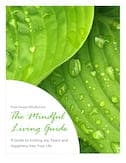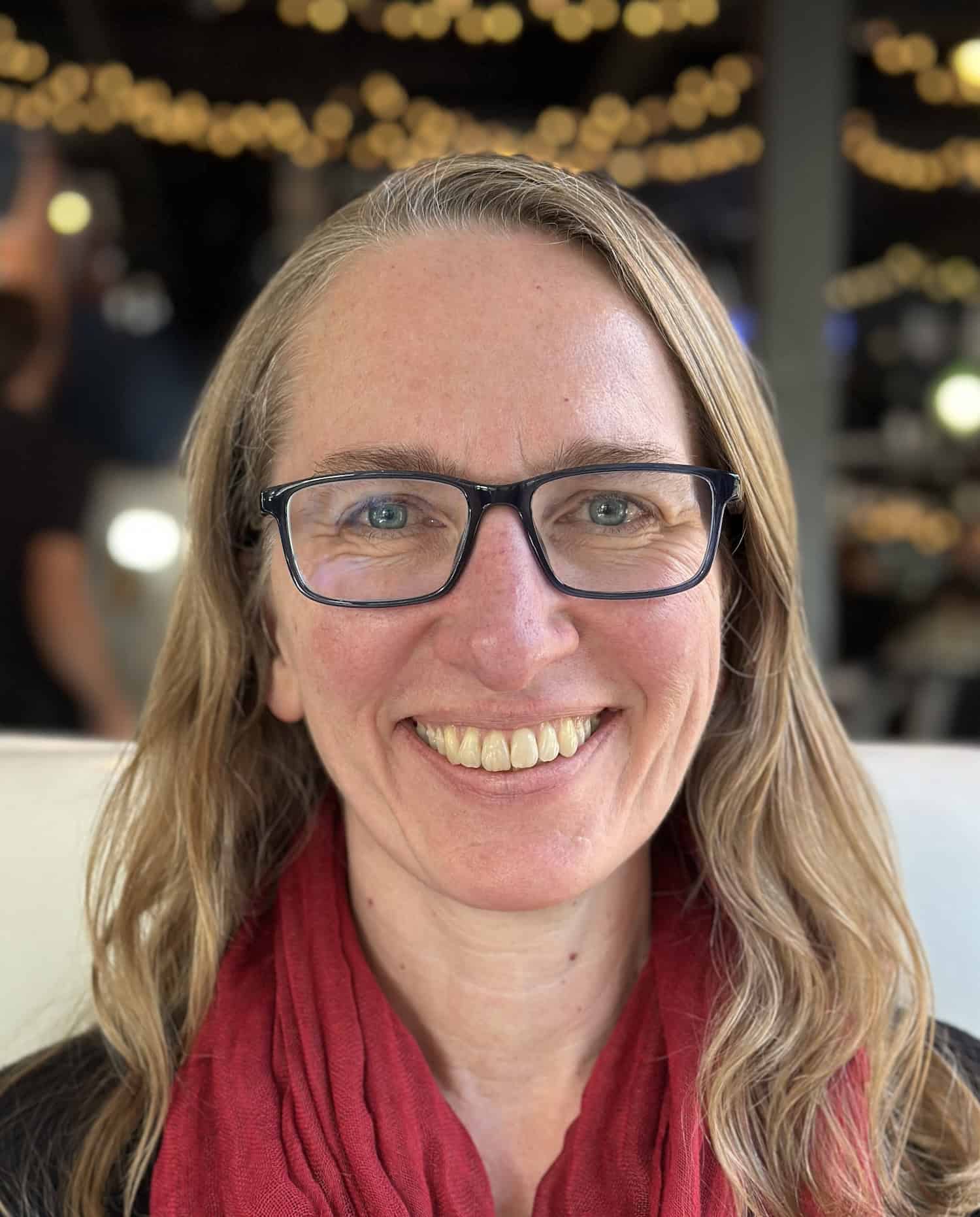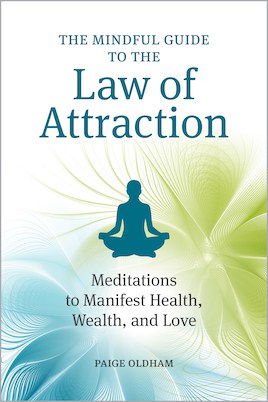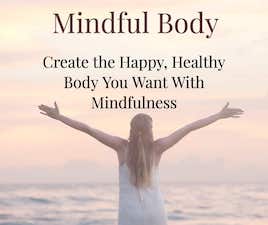We all want to be happy. One of the best ways to be happy is to be yourself as often as possible. When you express yourself from your heart, you feel good.
But how often do you act the way you think other people want you to act, stifling your True Self? How often do you later regret what you did or said because it wasn’t coming from your heart, it was coming from your desire to please?
Two of the top regrets of the dying are:
- I wish I’d had the courage to live a life true to myself, not the life others expected of me.
- I wish I had let myself be happier.
It’s amazing how unhappy you can make yourself in an effort to make others happy. And I emphasize “in an effort to” because, as hard as you may try, it’s not in your power to make someone else happy. If they’re hell-bent on being unhappy, nothing you do can change it.
Being happy is an inside job. It’s a decision you make about how you see yourself and the world. Your happiness is dictated by the stories you make up about the things that happen to you and others.
We Are Storytellers
Everyone is making up their own stories, their own reality. For this reason, there can be no one reality because, as quantum physics has proven, what appears real is affected by the observer. It’s how two people can describe completely different “facts” after witnessing the same crime.
The stories you tell yourself have a variety of labels:
- Beliefs
- Family traditions
- Interpretations of past events
- Societal norms
How many of yours help you to be happier? Which ones are keeping you from experiencing happiness? Just because your family or friends believe something or “that’s the way it’s always been” doesn’t make it right or true for you.
I spent much of my life being mildly to moderately depressed. Following my parents’ ways of dealing with things, I looked outside of myself and regularly found others to blame for my woes which only damaged my relationships with those people and kept me depressed.
I was a bit of a control freak, trying to make other people be and act like I wanted them to because I thought that would make me happier. You can probably guess how well that worked.
After beating my head against the wall long enough because I wasn’t getting the results I wanted, I stopped. I began to see how I was repeating the same negative patterns with different people in my life and never getting what I was looking for.
The Healing Begins
Noticing that I was repeating these patterns was the first step in changing them. At first, I didn’t know what to do differently. I started journaling to see what was in my head and my heart. I started to uncover all the stories I held to be true and question them.
I realized that a big part of my unhappiness was that my heart felt stifled. I was doing what I thought others expected of me which wasn’t necessarily what was in my heart. That had created anger and resentment in me that I hadn’t realized was there.
As a child, it wasn’t safe for me to express my emotions, so I learned how to bury them very early on. It took me years to begin to understand all that I had buried, not letting myself feel whatever was there.
Like a volcano, all that pressure builds until something blows. I didn’t want a big explosion, so I learned how to begin to release the pressure slowly with therapy, journaling, and mindfulness.
While I would like to say that everything got better in a few months, that’s not how things work. This work has taken years to peel back the layers of stories and beliefs I’ve held to be true in order to find my True Self – to find my happiness.
The more I allow myself to do and think differently, regardless of what others might think, the closer I get to my happiness. The less I censor myself for fear of ridicule, the better I feel.
What’s Wrong With Being Happy?
Why is it so hard to simply express happiness for fear that others will wonder what’s wrong with you? For example, when someone asks, “How’s it going?” and the most socially acceptable response is, “Oh my gosh! I’m so busy!” which implies that there’s so much to do that I can’t possibly relax and enjoy myself. Somehow, being happy comes across as being selfish, so we just complain about something instead, like how there’s too much to do and too little time to do it and we’re a victim to the whole mess.
People look at you like you have two heads if you say something like, “Things are going great and I’m really happy.” To this, the other person would probably think, “Really? How is that possible?” with an imperceptible notion of, “How do you have the right to be happy when I’m so unhappy?”
This brings us back to the second regret of the dying: I wish I had let myself be happier.
It’s as if there’s only so much happiness to go around and if I take too much of it, I’m stealing someone else’s piece of the pie. Like we’re all only allowed a certain amount of happiness (which isn’t much) and others will be angry at us if we look or act too happy because life is supposed to be hard.
Yes, life can be challenging at times, but that doesn’t mean you have to suffer through it. Again, it’s all about the stories you tell yourself about it.
Instead of “Life is challenging now and this sucks” you could reframe it as “Life is challenging now because I need to learn something. What have I missed that I can learn now to make my life better going forward?”
You could also incorporate the second regret into your questioning: How can I have the courage to live a life true to myself, not the life others expect of me?
What part of yourself have you been subduing that needs to see the light of day? How can you use that aspect of yourself to brighten someone’s day or make the world a little better? Or how can you express that aspect of yourself to feel a little happier?
The more often you express your true happiness, the more you give others the permission to do the same. Others have no problem complaining and expressing their unhappiness because society reinforces how normal this is. What if we all worked together to change this?
Ultimately, societal norms support this because taking responsibility for your own life and happiness without blaming others is harder to do. Just like zipping through the drive-thru of a fast food restaurant is easier than making a healthy meal at home, the easy option will leave you feeling sick and unhappy in the long term. Repeated on a daily basis, the fast food will land you in the hospital and the negative, victim thinking will keep you unhappy.
Both options (healthy and unhealthy) can easily become habits. Your daily habits create your life. Short-term pain leads to long-term gain. What seems difficult today can easily become a new healthy habit. This applies to exercise and diet as well as your internal thoughts and how you express yourself.
“Happiness is a habit…cultivate it.” ~Elbert Hubbard, 1856-1915, Writer, Publisher, and Artist
Simple Steps
At the end of each day or throughout each day for one week, write down the tiny choices you made throughout the day that created either (or both) of the two regrets of the dying.
What small changes can you make tomorrow to allow you to be your True Self and be a little happier?
Mindfully notice how the subtle (or not-so-subtle) changes you make lead to different results.
Experiment. There’s no such thing as failure. Notice and learn from each experiment. Keep what works and change what doesn’t.
The process never ends. You’re not going to wake up one day and feel like you’re done.
After years of this myself, I was journaling one day and realized how much happier I was than I used to be. I realized that being happy didn’t mean I was giddy and skipping around (although that’s fun to do; you should try it!). It’s more a serene sense of contentment most of the time.
Ultimately, I had to learn how to be happy with myself and accept myself and my circumstances, no matter what. The happier I became with myself (which led me to stop trying to control others so they could “make” me happy), the easier it became to express my True Self without worrying about what others might think.
“Be yourself; everyone else is already taken.” ~ Oscar Wilde
It’s your job to find your True Self, your authentic self, and express it in everything you do and think. That’s your gift to the world.
Create the life you want: Combine the law of attraction with mindfulness
The law of attraction suggests that our positive or negative thoughts bring about positive or negative experiences. My latest book, The Mindful Guide to Law of Attraction, pairs that belief with the powerful practices of mindfulness. Through intentional breathing, writing, and engaging, you’ll hone a method for manifesting health, wealth, and love―the elements of happiness.
Let the law of attraction work for you by adopting its basic steps of identifying and visualizing the things you desire. Then use 45 practical meditation techniques included in the book to achieve awareness. By concentrating your positive energy on obtaining your wants, you’ll give yourself permission to receive them.
To your happiness! ~Paige

You can find this book at Amazon, Barnes & Noble, Books-A-Million, and Indigo.






 The Mindful Living Guide
The Mindful Living Guide




Expressing one’s true self is something that we should all learn in this day and age; especially considering how powerful social media and media in general is – sometimes social pressure does make people buckle, and I think those experiencing this pressure will find your message helpful. Thank you Paige.
Being happy would be so simple if we knew how to think about ourselves without feeling selfish and without worrying about the judgment of others. After all, feeling good about yourself is the best and most honest way to succeed in making others happy. Thank you for your words, interesting.
When I hear this I often worry because it begs the question, “which is my authentic true self?” So the married person who is happy in the marriage but then meets someone at work who they resonate with and find themselves attracted to, which is their true self? Is the happily married or the person with the new found love interest? I would argue it’s both but both (in most cases) cannot be expressed. Just and the person who has a mortgage and family to support but would love to write or travel but her obligations don’t allow for her to just quit her job to write and travel. Yes, there are ways she might be able to pursue both but which “true self” is she willing to sacrifice to make it happen? I guess what I’m saying is there are often multiple paths we could take and picking the one isn’t always easy.
Mack,
Rather than seeing these situations as “either/or,” I would look more deeply at what the situation is offering for learning opportunities and growth. If the happily married person is attracted to another person, you could ask what is missing from the “happy relationship” that causes a person to look elsewhere. What deeper needs are they looking to have met by the new person? How committed are they to the marriage? Are they only seeking acceptance and approval which feels obvious in a new flirtation but may have mellowed in the marriage? How can those needs be met in the marriage?
The True Self is the one observing the situation and asking the ego why it feels the need to look for a new relationship. The True Self is helping you to grow and learn. The decision to stay in the marriage or move forward with the new love interest should be made with guidance from the True Self. Which choice will help you grow and develop vs. getting ego-based needs met?
The person with a mortgage and family who wants to write and travel (yes, that’s me) can ask for guidance from her True Self on the best ways to express these wants. Writing is important to me so I make it a priority in my life, amidst a full-time job, happy marriage and three energetic kids that we homeschool. I traveled before having kids and would like to travel more but know that now is not the right time. I’d like to invite my kids to travel with me in the future when they’re a bit older. In the meantime, I don’t dwell on the “sacrifice” of not traveling now. I spend my time marveling at how amazing my life and family are right here, right now, just the way it is.
When you make choices by listening to the guidance of your True Self, they don’t feel like sacrifices at all. The way I see it, it’s not my True Self who makes the choices and takes the actions. It’s me. I can choose to listen to my ego or monkey mind (brain) that almost always leads me astray. Or I can choose to listen to my True Self (heart) who always knows what’s best for me but doesn’t screech and scream like the monkey mind so it’s harder to hear its whispers.
Knowing in my heart that I’ve made the best decision for me takes the concept of sacrifice out of the equation. When I listen to my True Self, I know that I’ve always made the best choice for me.
Not to be confrontational but this is why this comes across as platitudes. You start by saying the regrets of the dying are:
I wish I’d had the courage to live a life true to myself, not the life others expected of me.
I wish I had let myself be happier.
Then when I mention a dilemma you fall back to old talking points. I said the person was happily married. There was nothing missing and nothing “wrong”. They met a person at work whose energy resonated with them. This was someone whom they worked with on projects and brainstorming facing and overcoming challenges together. They weren’t seeking a new relationship. The reality of life is that they worked together. They spent more time together than the worker and their spouse. Now a part of them says, “I really like working with this person and help me to perform at my peak.” I also love my spouse who also brings out the best in me in a different way. Now how do they identify their “authentic self”?
The reality is they are stuck with societies expectations. To live their TRUE AUTHENTIC SELF, they would be honest with all parties. Share with the spouse their feelings at work, and share with their work partner their feelings and concerns. With the truth expressed they can decide how best to deal with the situations and what works best for ALL involved.
The key is perhaps in what you suggest about decisions. Perhaps realizing that we are our choices and that whatever we choose WE are responsible for that choice so make sure we are choosing is based upon what WE think is best and not just following societies “rules” and expectations. Figuring out how to make things work for you and those you care about is possibly the way to
have the courage to live a life true to yourself, not the life others expected of me and
Let yourself be happier.
But don’t expect it to be easy.
You’ve summed it up perfectly, Mack. Figuring out what’s true for you and having the courage to live it isn’t easy, but it’s the path to happiness. Thank you for this!
Thank you for sharing this, Paige! good read and powerful. Just what I needed to read. Cheers!
So glad it helped you, Krystal! Have an amazing day!
Hi Paige,
This article really resonated with me today, especially the parts about your childhood. I’ve been journaling, attending therapy, and practicing mindfulness on my journey of self-improvement and finding happiness within myself. Yet, I’ve still been struggling with the feelings of anger and resentment from burying my emotions and pleasing other people, as you mentioned. How were you able to work through or manage those feelings to overcome them?
Thank you!
Tiffany,
It’s great that you’re working on finding your happiness. My first step in healing was to stop blaming others for my emotions and to take full responsibility for my own happiness. My emotions are my own reaction to a situation that I made up a story about. No one can make me feel anything. All my reactions are my own choices. Old thinking sounds like, “It’s someone else’s fault that I had to bury my emotions and I’m angry at them about that.” New thinking is, “I didn’t feel safe expressing my emotions so I buried them. The other person is dealing with their own issues and it’s unfortunate that they couldn’t find a more productive way of dealing with them.”
Putting myself in the other person’s shoes to more fully understand why they are the way they are helps me to empathize and feel some compassion toward them. That compassion melts the anger and resentment over time.
Journaling about your emotions can help to process them. Delve into them to better understand the stories you’re telling yourself and ask if those stories are true or simply something to prove that you were right. Since we’re all just making up stories about what happens to us, we can all re-write our stories and turn them into something that supports us.
Here are links to some articles that elaborate on this: https://www.simplemindfulness.com/the-art-of-helping-others/ https://www.simplemindfulness.com/how-to-figure-out-your-life-purpose/ https://www.simplemindfulness.com/attitude-determines-outcome/
Moving past these emotions and learning how to avoid them in the future is a practice that, like everything else worthwhile, takes time. Use mindfulness to notice when you’ve slipped back into old ways of thinking and non-judgmentally bring yourself back to thinking that supports your health and happiness.
Totally love this article Paige! I am all for living from the heart and feeling good about it 🙂 We are the product of our choices ultimately.
Exactly Zeenat! If more people could become more aware of their choices and take responsibility for them, the less they would blame others for how their lives are.
I too think they should teach this important stuff in schools. And I love the fact that it’s a permanent ongoing process. I love the expansiveness of that idea.
It’s an interesting process of unfolding, always learning something new about ourselves.
These simple steps seem extremely powerful, Paige. I especially like this too: “When you express yourself from your heart, you feel good.” We make life so complicated because of all the conditioning you mention, but it can really be simple, can’t it!
Life seems to get simpler and happier when we accept ourselves just as we are and not worry about what others might think of us.
one of the good post indeed here!
Actually here in the life line , i got to know about the things which are helpful and can be change our life on the bases of experiments and lot of things.
Thanks !
Experimentation is key, Janie. As is being open to whatever may result from those experiments. We don’t learn and grow without trying new things.
Hi Paige,
I can relate to your comment, “as a child, it wasn’t safe for me to express my emotions, so I learned how to bury them very early on.” This is probably true of many people. Past generations weren’t as concerned with expressing emotions and many had been taught to suppress them as well.
I like your tip to write down the tiny choices you made throughout the day that created either (or both) of the two regrets of the dying. What a great way to be present and honest with yourself each day.
Burying emotions was something that came a little too easily for me when I was young, being an extreme introvert in a family of extroverts who regularly asked me, “What’s wrong with you?” It took a while to learn, but I’m proud of who I am.
Yes, mindfully noticing choices can be incredibly powerful. You can’t change what you’re not aware of.
Thanks Cathy!
Paige,
I could not agree more with this post. Our life is definitely made up of our choices and habits…which are choices in the end. As Elbert Hubbard said, happiness is one of those…a habit and choice.We are not victims here. As you say, becoming aware is key. Living with authenticity will hopefully allow me to have little regret in the end. I regret that I didn’t figure this out sooner! 🙂
I agree Debbie! There are so many critical life lessons that I didn’t learn until after I was 40. Why don’t they teach this truly important stuff in schools? More reasons we homeschool our three. It’s never too late to change our choices, habits and lives to remove regrets and live as authentically and happily as we can.